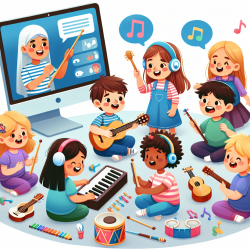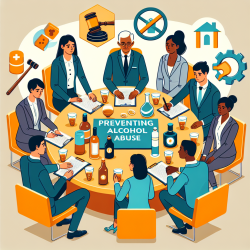In the world of special education, finding effective and engaging ways to enhance phonological awareness and early literacy skills in children can be a challenging task. However, the research article "Silly Songs for Phonology and Sound Awareness" by Beverly Banker, with illustrations by Karen Tanner, provides a resource that combines fun with education to achieve these goals. This blog aims to guide practitioners on how to implement the findings of this research into their practice and encourage further exploration of such innovative methods.
The Power of Music in Learning
Music has long been recognized as a powerful tool in education, particularly for young children. "Silly Songs for Phonology and Sound Awareness" leverages this by using familiar childhood melodies to develop phonological awareness and literacy skills. The program targets children from preschool to grade two, especially those with phonological delays or disorders.
Key Features of Silly Songs
- Auditory Bombardment: The program provides auditory bombardment of selected phonemes to develop phonological awareness and production of targeted phonemes.
- Interactive Learning: The songs are interactive, encouraging children to fill in missing words and phrases, which aids in memory and learning.
- Multi-Sensory Approach: The program includes reproducible black and white pictures that children can color and personalize, enhancing their engagement and understanding.
- Extension Activities: Additional games and activities are provided to reinforce learning and allow for practical application.
Implementing Silly Songs in Your Practice
Here are some practical steps for integrating "Silly Songs for Phonology and Sound Awareness" into your therapy sessions:
1. Start with an Assessment
Before beginning the program, conduct a thorough assessment of each child's phonological skills. This will help you set appropriate goals and tailor the program to meet their specific needs.
2. Use the Songs in Various Settings
The versatility of Silly Songs allows it to be used in one-on-one sessions, small groups, or even in a classroom setting. This flexibility ensures that children can benefit from the program regardless of the learning environment.
3. Encourage Parental Involvement
One of the strengths of Silly Songs is its ease of use at home. Provide parents with copies of the songs and activities to encourage practice outside of therapy sessions. This can significantly enhance the child's progress.
4. Track Progress and Adjust as Needed
Regularly monitor each child's progress using the provided skill checklists. Adjust the program as necessary to ensure that it continues to meet their evolving needs.
Encouraging Further Research
While "Silly Songs for Phonology and Sound Awareness" is a valuable resource, it is important to continue exploring new methods and resources to support phonological development. Consider the following recommendations:
- Expand Your Toolkit: Look for additional resources that target different phonemes or offer more comprehensive coverage of phonological skills.
- Stay Informed: Keep up-to-date with the latest research in phonology and early literacy to ensure that your practice remains evidence-based.
- Collaborate with Colleagues: Share your experiences and insights with other practitioners to foster a community of learning and support.
To read the original research paper, please follow this link: Silly Songs for Phonology and Sound Awareness.










